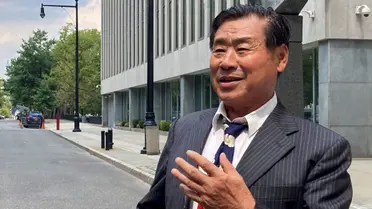A Chinese academic was convicted on Tuesday for illegally acting as a foreign agent in the United States by gathering information about New York-based activists supporting democracy in China and relaying his findings to Beijing. The jury found Wang Shujun guilty on four counts, including acting as a foreign agent without notifying the U.S. Attorney General and lying to U.S. authorities, following a trial in Brooklyn federal court.

Wang Shujun faces a potential sentence of up to 25 years in prison, with sentencing scheduled for January 9, 2025. Federal prosecutors revealed that Wang, a naturalized U.S. citizen, had infiltrated pro-democracy circles by posing as a vocal critic of the Chinese Communist Party. His activities were aimed at winning the trust of Hong Kong pro-democracy activists, as well as advocates for Taiwanese independence and Uyghur and Tibetan rights.
According to prosecutors, Wang secretly provided intelligence to China’s Ministry of State Security (MSS), an intelligence agency. His actions included spying on activists and reporting their activities back to Chinese officials. Breon Peace, the U.S. Attorney for the Eastern District of New York, commented on the severity of Wang’s actions, stating, “Wang was willing to betray those who trusted and admired him.”

Wang, who has been residing in the United States since emigrating in 1994, was arrested in March 2022. During the trial, his defense lawyer, Zachary Margulis-Ohnuma, argued that Wang engaged with the intelligence agency to further support pro-democracy efforts, rather than undermining them.
Margulis-Ohnuma expressed disappointment with the jury’s verdict but stated that Wang would respect the legal process and accept the court’s decision. The defense is contemplating an appeal, asserting that Wang’s intentions were misinterpreted and that he did not intend to harm anyone.
The conviction underscores the ongoing concerns regarding foreign espionage activities in the U.S., particularly those linked to sensitive political movements and human rights issues. The case highlights the intricate challenges faced by individuals navigating complex international relations and the severe consequences of violating U.S. espionage laws.
Reuters



